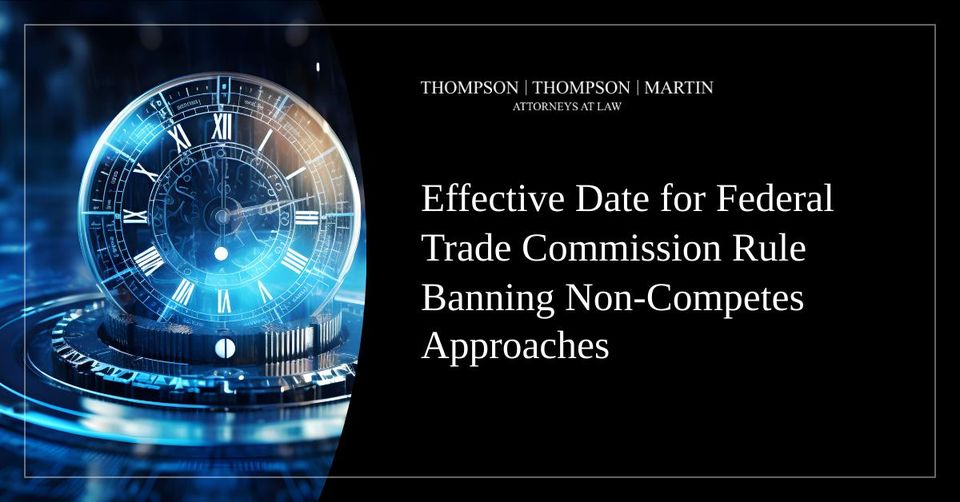EFFECTIVE DATE FOR FEDERAL TRADE COMMISSION RULE BANNING NON-COMPETES APPROACHES
On September 4, 2024, the Federal Trade Commission’s (“FTC”) final rule banning most non-competes with workers is scheduled to go into effect.
WHAT DOES THIS FTC RULE PROHIBIT?
The FTC’s rule declares that an entity under the FTC’s authority engages in unfair competition if, regarding an worker other than a senior executive, it:
- Enters into or attempts to enter into a non-compete clause;
- Enforces or attempts to enforce a non-compete clause; or
- Represents that a worker is subject to a non-compete clause.
For senior executives, non-compete agreements that were entered into prior to the effective date of the rule remain enforceable, but employers are prohibited from entering into new non-competes with senior executives after the rule’s effective date.
THE FTC RULE DOES NOT PROHIBIT:
- Non-competes entered into in connection with a bona fide sale of a business; or
- Causes of action regarding an existing non-compete that arose prior to the rule’s effective date.
WHO IS CONSIDERED A “SENIOR EXECUTIVE”?
A senior executive is defined as a worker who both:
- Is in a policy-making position; and
- Has earned at least $151,164 in the preceding year (or the equivalent annualized for partial year employment).
- President;
- CEO; or
- Other officer or other natural person who has policy making authority.
“Policy-making authority” means the person has final authority to make policy decisions that control significant aspects of a business entity or common enterprise.
WHO DOES THE FTC RULE APPLY TO?
The FTC Act applies to the majority of business entities and individuals, excluding only entities such as non-profits, banks and credit unions, and common carriers.
WHAT SHOULD BUSINESSES AND INDIVIDUALS DO NOW?
- Review existing non-compete agreements. Employers should begin reviewing all existing non-compete agreements in place to determine which workers are subject to non-compete provisions, and whether any of these workers qualify for the senior executive exception to the application of the rule.
- Prepare to provide the required notification to workers. The FTC rule requires employers to notify workers who’s non-compete agreements are unenforceable after the rule’s effective date and include language in the notification that satisfies the rule’s notice requirements.
- Implement other enforceable restrictive covenant agreements. Because the final rule is limited to traditional “pure” non-compete agreements, it may not prohibit other types of restrictive covenants such as customer or employee non-solicits, and non-disclosure and confidentiality agreements. Employers should consider adopting such agreements if they are not already in place to protect their business interests.




